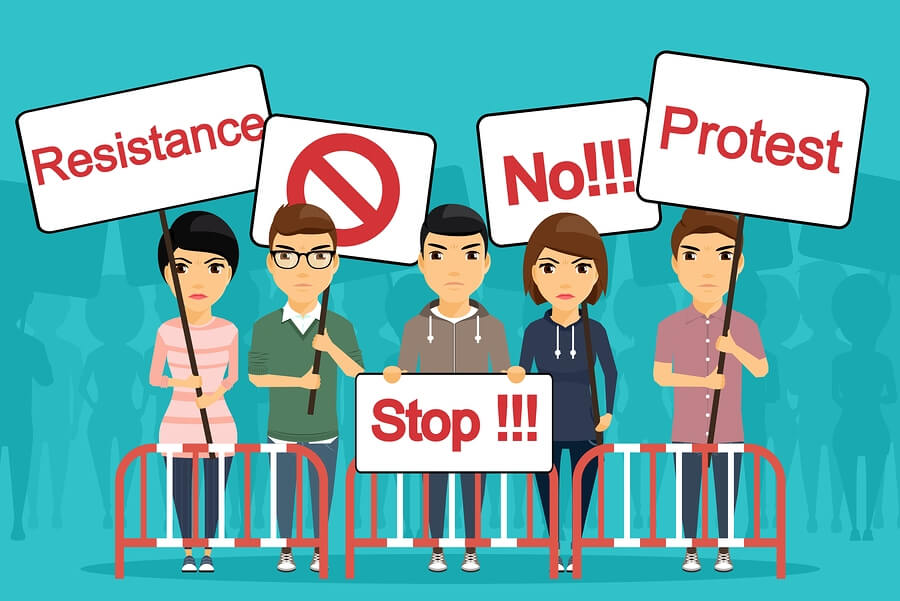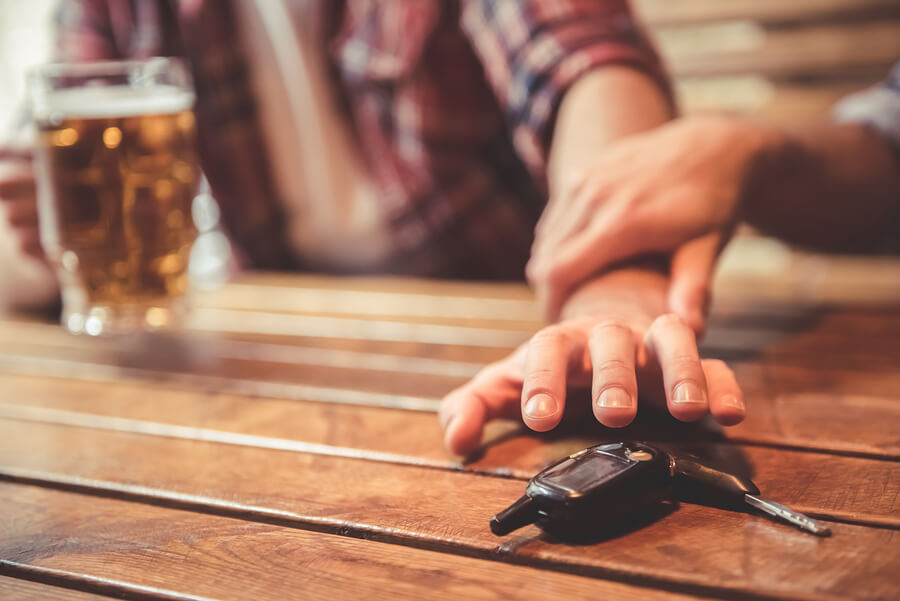The cornerstones of freedom and liberty in America has foundations in the First Amendment, and in both the North Carolina Constitution and the First Amendment to the U.S. Constitution, you are giving the right to free expression and speech. However, like the yelling “fire” in a crowded theater example, or participating in violent actions during a riot, there are certain limitations to free speech that could turn into criminal matters.

Free speech laws are complex, and with a continuously changing legal landscape regarding free speech in North Carolina, your rightful protests could turn into a criminal matter. If you were arrested in Raleigh or Wake County for protesting, make sure to call the leading criminal defense attorney in the Raleigh and Triangle Area: Dewey P. Brinkley.
Don’t hesitate, and the moment you’re arrested or facing charges, call the Law Office of Dewey P. Brinkley in Raleigh today at (919) 832-0307.
Elements of Free Speech to Remember
There are three things that you need to remember when it comes to free speech laws and rights in North Carolina:
- It’s not about what you say, it’s how you say it. No matter your beliefs, you have the right to express your opinions. However, it’s how you use that right that matters in courts. For instance, if you organize a protest that causes serious disruption, then the police may be able to intervene and you may be held criminally liable.
- Free speech is for everyone. It doesn’t matter who you are, whether you’re old or young, Christian or Muslim, a U.S. citizen or not, you right to free speech is protected.
- Always consider the when, where, and how when using your right to free speech. For instance, if you organize a protest that turns violent or causes disruption, your event could be canceled. Make sure you know the municipalities regulations and observe the ones related to time, place, and the manner in which you exercise your rights.
Protest vs. Riot?
The difference between a protest and a riot is fairly simple. A protest is, in the majority of instances, legal and protected while a riot that involves violence and civil disorder can be considered criminal behavior and not protected by free speech laws.
According to the Oxford dictionary, a protest is “a statement or action expressing disapproval of or objection to something.” As such, when individuals say they’re organizing a protest, it’s usually a peaceful, public demonstration expressing strong objection. When violent acts occur during a protest, however, it can become a riot. According to the Oxford dictionary, a riot is “a violent disturbance of the peace by a crowd.”
Penalties for Rioting in North Carolina
Furthermore, rioting is a crime defined in the North Carolina penal code, under § 14-288.2. Riot; inciting to riot; punishments. According to this law, “A riot is a public disturbance involving an assemblage of three or more persons which by disorderly and violent conduct, or the imminent threat of disorderly and violent conduct, results in injury or damage to persons or property or creates a clear and present danger of injury or damage to persons or property.”
The criminal penalty for rioting is a Class 1 Misdemeanor; however, you could be looking at a Class H Felony if one of the following apply:
- During the course of the riot, there is serious bodily injury or property damage that exceeds $1,500
- The rioter was in possession of a dangerous weapon or a substance
Also, willfully inciting or urging others to riot is a Class 1 Misdemeanor (a Class F Felony if the resulting riot caused serious bodily harm or excessive property damage), and it is here where the line between protest and riot can get blurred.
Changing Legal Landscapes for Protesting in North Carolina
Although the definitions sound pretty straightforward, peaceful protestors are often the target of police intervention and arrest. Furthermore, the legal landscape regarding free speech and protests is always changing. In February of 2017, lawmakers in North Carolina introduced a bill that could open up felony charges to any criminal offense that leads to at least $1,000 in economic harm to any business, if the offender intended to intimidate the government or public.
This bill was rejected in the NC House in April, but this bill proposal and its failure does represent how laws regarding protests and riots can change.
Arrested for Exercising Your Right to Free Speech? Call Raleigh Attorney Brinkley Today
If you were arrested during a peaceful protest, or if a protest got out of hand and turned into a riot, then make sure to call Raleigh criminal attorney Dewey Brinkley today. For a free consultation with our Raleigh criminal law firm, call us today at (919) 832-0307.

 According to
According to 